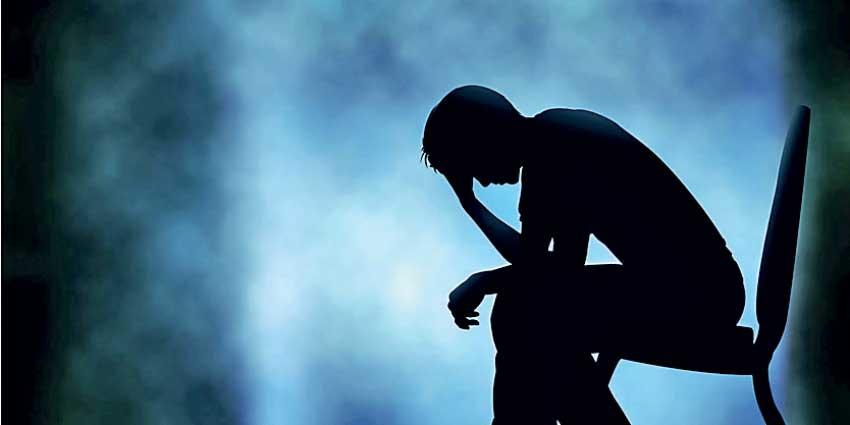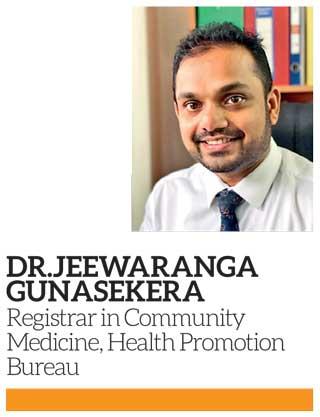29 Oct 2021 - {{hitsCtrl.values.hits}}

As the COVID-19 pandemic continues to unfold in Sri Lanka having a major effect on everyone’s lives, many are facing challenges that can be stressful, overwhelming, causing strong emotions in both adults and children. Dr Jeewaranga Gunasekera, Registrar in Community Medicine, Health Promotion Bureau, reiterates that positivity, hope and mindfulness can play an immense role in bolstering mental health during COVID-19, especially in building processes and capacities that can help to strengthen mental health.
 Sharing tips on staying positive and hopeful during these challenging times, Dr Gunasekera explained, “We just have to understand that the current Covid pandemic poses a challenging time, similar to other difficult times we have faced in life; situations not really going the way we want. But then we did not abandon life. We had hope that it will be better. Now, it is pivotal to focus on hope, that life will be better.” said Dr Gunasekera.
Sharing tips on staying positive and hopeful during these challenging times, Dr Gunasekera explained, “We just have to understand that the current Covid pandemic poses a challenging time, similar to other difficult times we have faced in life; situations not really going the way we want. But then we did not abandon life. We had hope that it will be better. Now, it is pivotal to focus on hope, that life will be better.” said Dr Gunasekera.
He noted that learning to cope with stress in a healthy way will help everyone and those around become more resilient, “How you manage yourself, your resources, emotions, relationships during these hard times is important. An adequate amount of stress is important in your life as it prepares you to face the challenges, we call this ‘Eustress’. But what we should refrain from is being ‘distressed’ – disproportionately worried which hinders our lifestyle resulting in reacting and decision making through fear. What is crucial is to focus on concern and not fear.” the doctor added.
Listing the importance of practicing ‘DReAM-V’ based on COVID Appropriate Behaviours, Dr Gunasekera advised the need to maintain physical Distancing, Respiratory etiquette, follow Aseptic techniques, wearing a Mask and the urgency of being Vaccinated.
He also opined on the need to have a better understanding of the mechanism of the disease to help us relax as a lack of understanding of the disease could lead to a sense of mystery and helplessness. He forewarned, ‘there is no one magic potion that will keep you safe. Adhering to all COVID Appropriate Behaviours as much as possible is what will keep you safe.’
Offering a few important tips, Dr Gunasekera said, “Consume only an adequate amount of news and information on COVID, do not become overwhelmed with news throughout the day. Eat a balanced diet, pay attention to nutrition especially for elderly and children, and exercise for at least half an hour a day.” To counter misinformation that children could have, parents are advised to have proactive conversations about staying safe.
Offering support to those who have been infected and now recovered but need help to cope mentally, Dr Gunasekera urged, “You need to understand that COVID is one illness you can have control. Be realistic and positive when you get the illness. Get help from your relatives and loved ones. Talk to them, keep in touch. Physically you distance but socially you are together. Eat healthy, drink adequate water and stop consuming alcohol.” added Dr Gunasekera.
He further emphasized on taking the time to engage in something that is worthwhile, “You have got COVID, do not exert but grab this opportunity as it is the best time to explore new interests. That will bring positivity to your life.” the doctor said.
In taking care of the mental health of adolescents and young people, Dr Gunasekera advised “We have to understand that young children are having a harder time than we are. They are isolated from social life. We need to help them understand that life will be better than this in the near future. Implant the idea in their minds. Give them more warmth, engage them in physical activity, board game etc.” said Dr Gunasekera.
Especially for teenagers the need to normalize their anxiety by providing empathy and continuous support is important. Parents should help them to seek positive distractions not screen-related and ask their children suggestions of activities to do so while maintaining structures or a schedule providing some predictability in their day. Additionally, parents should try to manage their own anxiety away from children as they can take cues from parents and adults.
Cautioning parents and caregivers on how COVID is affecting children’s lifestyles, Dr Gunasekera noted the increased usage of online gaming as a social mingling method is resulting in addiction, and today becoming a major issue, teenagers becoming addicted to porn due to lack of physical contact with the opposite sex or consuming alcohol/smoking by seeing parents consuming these substances at home, are areas of concern. He advised parents to increase their attention to these issues to protect and improve children’s mental health during this period while ensuring their privacy and treating them as individuals with own responsibilities is paramount.
Acknowledging the impact of COVID for individuals already being treated for mental issues, Dr Gunasekera noted that these patients might be lacking insight to their illness. He emphasized on the need to ensure they continue to take their medicine, visit the clinic and undergo psychotherapy. He counselled, “When a mentally ill person gets COVID, reveal it to them, do not hide the fact. Help to maintain their hygiene and stay hydrated.”
If help is required, Dr Gunasekera requested family members or caregivers to contact the mental health hotline via 1926 which is conducted by the National Institute of Mental Health or the 1999 hotline operated by the Health Promotion Bureau. These hotlines are available 24/7, 365 days in all three languages.
(This article is part an awareness campaign conducted jointly by the Health Promotion Bureau of the Ministry of Health, the World Bank and UNICEF to shed light on essential information in relation to Covid-19, the importance of Covid Appropriate Behaviour (CAB) and the need to continue prevention measures after vaccination.
21 Dec 2024 2 minute ago
21 Dec 2024 8 minute ago
21 Dec 2024 1 hours ago
20 Dec 2024 9 hours ago
20 Dec 2024 20 Dec 2024